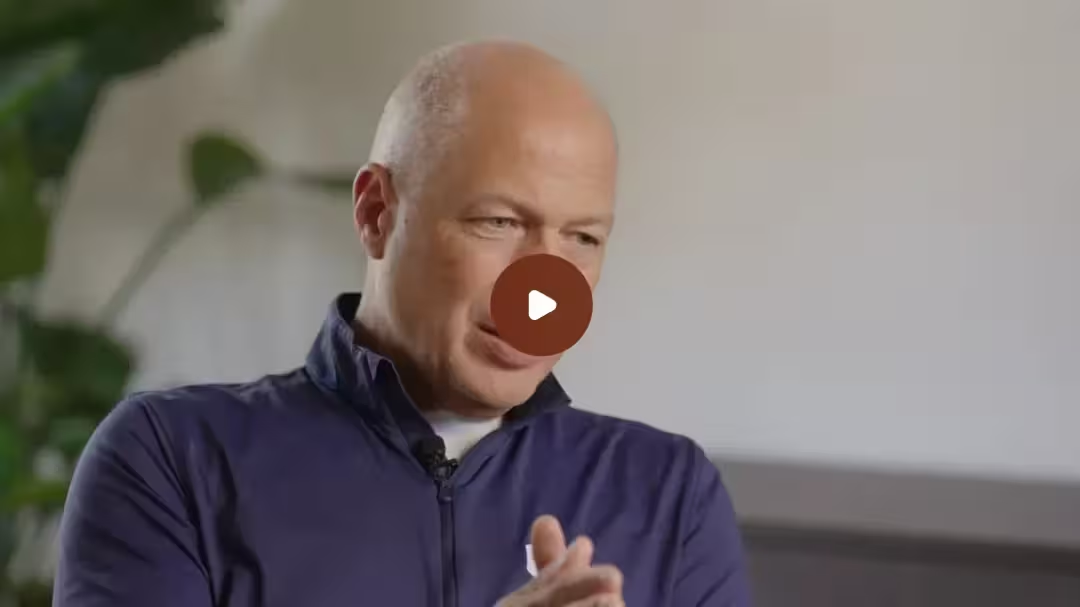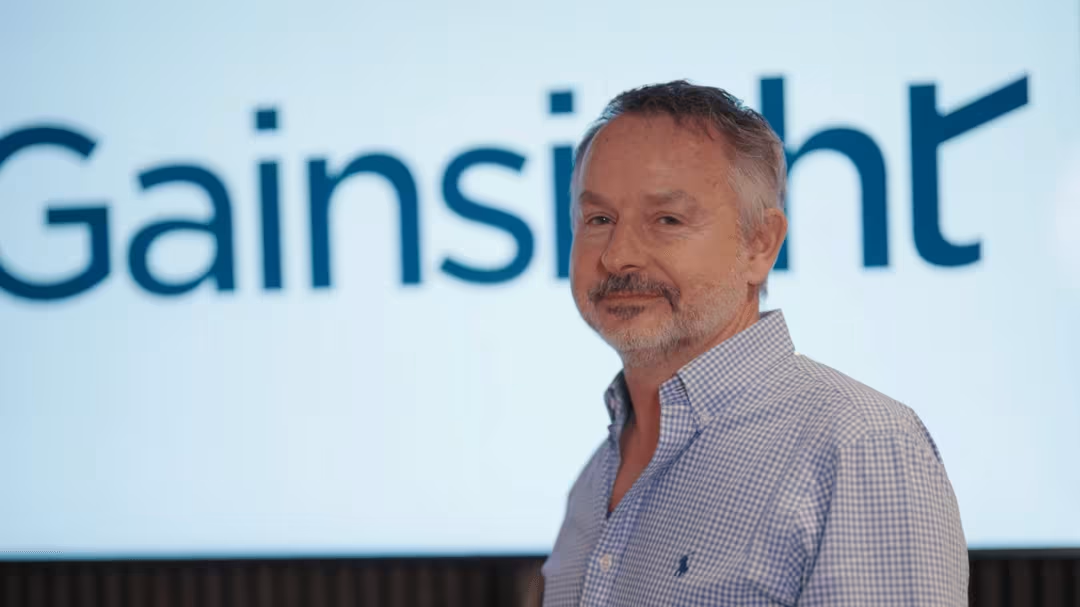The Interview
Kluster's Take
Tom spoke with Rowan Booth, Director of Revenue Operations at Vend. He tells us about attaching empathy to the sales process.
Rowan understands that sales is a hard job. He stresses that when ops bear this in mind, they can win the trust of sales folks, enabling them. He explains that you should focus on adding value, providing information that can help reps. He translates the complexity of the data into something they can use.
Rowan has an interesting take on achieving success in sales. He creates leader boards based on metrics that go beyond revenue booked. Reps who close less but better understand the customer reduce churn. This is equally important.
Transcription
I think the biggest thing we can do is remove a lot of the noise from the rep's life. You really only want to communicate with them when you have something to say and something actually you value. If you communicate with them all the time and constantly you can lose that kind of bang.
My, my philosophy, your, every revenue operations is to actually maintain the level of empathy with the actual process. I think a lot of the revenue leaders are in revenue or sales. Operations can kind of get lost from the fact that that sales is a hard gig, hard job. And my philosophy is to maintain that level of empathy and, and push that through.
The initiatives you're trying to push, push out. And that might be to the customers, obviously the empathy with them and also out to the sales team. So remain humble and remain aware of that, of what other people are feeling. That's pretty interesting. I hear a lot about people trying to understand the worldview of a rat, but I hadn't quite heard it described in a way where you link empathy to the processes.
So I'm really keen to begin inherit a bit more about how that really works. Yeah. I, I think that, uh, definitely with, um, the, when you're having an operations or a sales operations function, you kind of, um, you kind of sh you kind of have to assume that every rep is, uh, or you kind of, the approach I've seen previously is you assume that every rep.
It's really dumb and you're really not very intelligent. And I don't understand the parts of what you're trying to do, but I find that it's very not the case. And I think it's a lot to do with how you communicate with them. If you communicate them within a way, not just necessarily obviously telling your messages and all the other bits and pieces too, but if you can, computerate with a level of empathy, you actually can get a lot of little more trust with it with the end users and you can get a lot more output with the customer.
Um, and with the customers through that process. I think if we try to push things down all the time and try to assume a level of knowledge that we might've had over years of experience or years of, um, or, or deeper understandings, like our day job is to go through these files or data and revenue analytics, and to do that kind of stuff where the sales team's jobs meant to sell.
And, um, if we go in there with a, uh, a high level theory that we expect them to come up and speak really quickly, then we can get ourselves. Um, caught out and lose that trust with the, with the rep, which I think is really important. Okay. Uh, yeah. Okay. So it's almost a translational element from the more complex analytics you're doing to making that simplified for the rep to understand yeah.
Take them on that journey. Don't don't expect them to have gone through the same level of insights that you've you've might have done. Yeah. Yeah. It makes a lot of sense. Right. So if we're thinking about then the high impact. Work we can do for the reps and the analytics we can do for them. That's really going to turn the needle, make a difference.
Um, what are some of the ways we could simplify things? How do we bring these big complex data spreadsheets, whatever else we're using on the, how, how do we make. Digestible for reps. And in your view, what, what's your method? So I think that the first thing is that digestion comes from a level of, um, judging digestion will come from fact, they value the actual product itself.
So if I do not value what they, what we were pushing out, then they won't consume it. So actually making it as digestible as like, if you're not actually pushing it into a way where the rep sees the value in that, then they're not going to use it. How you actually going to put your hip. So making sure that actually that what we are pushing out, it makes sense.
I think the biggest thing we can do is remove a lot of the noise from the rep's life. Like only communicate really like we would do with our customers. It's kind of like an unsaid managing our unsubscribe on a marketing operations. You really only want to communicate with them when you really have something to say and something actually, you have.
If you communicate with them all the time and constantly, um, you can kind of lose that, um, that, that kind of bang, um, in, in your messaging, particularly when it comes time for processes changes. I think if you're only communicating them about the, uh, no, make sure you keep your call times above this slide, but make sure you touch on this.
You're actually doing all of those. So communicating those on a regular basis, you can kind of lose the benefit when you want to start to roll out processes changes, particularly with your CRM or introducing. And new items and you've got to make those trade-offs between. Okay. I can either go bug this one rep about increasing their call hold times or increasing their call volumes, or I can actually go, uh, broadly and talk about a holistic approach to better data capture.
And I can focus on that. That's a bigger, bigger item rather than actually focusing on. Yeah. So you're making some prioritization calls about what you actually talking to the reps about. Yeah. Okay. So it's policing versus adding. Yeah. I don't know what that word placing. Cause I think you called a place when things are in trouble.
I'd like to think we're calling the ambulance, I think is the way you call. Like you're there all the time and you're there when someone is in trouble. Uh, and then you, as you try to help them, um, to get back on their fatal, to get more help. Yeah, it makes a lot of sense. Okay. Um, what we're kind of breeching into here is the idea of being really proactive and robots.
Aren't we like we're going with good information. That's going to turn the needle that can make a difference rather than, as you said, just being the arguments all the time. Um, famously hard to do, being proactive, especially when we're so busy and there's so much going on. Um, so how do we manage our time priorities?
How do we make sure we're being proactive in the world where so many requests are coming to revenue operations, and there's always so much to do. Yeah, I think the proactive element, and also too, when you, when you are being proactive, sometimes you have to be aware that that the person will not be really to listen.
So you might be proactively, but they're not actually ready to accept that call. So I think the open door policy is where we try to come to try to build that level of trust and. So we talk to the reps about one thing. We might talk to them just about generally how their life was. And, and then generally build that trust up where they can feel open to come to us.
But the proactive side of it was really what I like about the revenue operations function, where I see that the main common differences are between the sales, operations function and revenue operations function. And you kind of a few steps ahead and you have a bigger Rayment to actually, um, to affect the actual, uh, the entire outcome.
So I think the way I like to be proactive is obviously, uh, consuming. Um, engaging in numbers and gorging in the facts, uh, listen to as many calls as possible. Um, I try to sit on as many demos as possible. Um, so it's, again, consuming more information. And then I like to, um, I kind of like do a daily, what would tomorrow look like?
Um, if this keeps happening? Yeah. Uh, every weekend. So I don't daily every week I do. What would tomorrow look like if it's week, if this week started rolled through, and then I asked myself the questions, do I need to go and speak to someone about this to make it not happen? Or is this going to be a big impact again, again, prioritizing whether if I find something that's I think mine or a niggling problem, I'll probably wait until it's an actual problem before I actually raise it, because I do want to make sure that messages, um, obviously if there's anything that I feel like it's necessary to bring up early, I go and bring up.
That's fantastic. So we do a hypothetical piece here. We almost projected into the future. If we keep on seeing this trend, what might the impact of that be? So that the moment when we decide, we do see that trend, we have an idea of what the impact is going to be ruined. What does that conversation go like go with marketing sales, leadership, really interested to see the next stage of that, that hypothetical, almost experiment you're running.
So usually I try to get a second opinion, but with peas and get a second opinion on this is what I'm thinking. What do you think this is going to happen? And if I can explain to them what my thinking was and gave the point, then, then we'll start to stretch that out. And that could mean that I say the reps aren't filling out this field on the Salesforce.
Can we change if we, if we continue to not getting that, we're going to lose our quality of data, do we need to organize them or it might be, I don't know. Do we need this form? It's not being filled out. We're not using the data in any reports. It's uh, can we, can we take it out of the sales process? So it's actually, you'll obviously multidisciplinary where we're going or could be with finance saying, uh, revenue trajectory is going through the floor all through the roof.
Um, and we needed to address that through. Additional aid cancel or, or, or additional capacity building X activities. Mm Hmm. Okay. Interesting. Th th the good point about this phone is it raises the question between robots and how it partners with the sales leadership, for example, um, I think everyone has a different approach here, right?
Some people like to be further pack. Some people like to be more involved. For you, what does a really great partnership with sales leadership look like? And to what extent should revenue operations be involved, um, and, and how they execute. I really think we need to be involved as closely as possible with the revenue function.
Um, I kind of like save revenue operations sitting is that glue between a lot of different departments. And I think that's been said a lot of times, um, like we do sit on the technical side, but we do usually manage the CRM. We do manage the marketing operations. We do. We do all that other bits and pieces, but as close as we can to the sales arm gives us the closest we can to the customer, my, my, my mind.
So I'll have that be through account management all through, uh, account executives. Um, so if we're calling the closer we are to that, the more understand that we have, and then that level of empathy, if we roll that through as well, it allows us to make better decisions and more informed decisions about what we're doing with our customers, um, and, and, and event where we are going to do as a company.
Yeah interest. So I feel upfront and I'm as close as possible to the, um, to the, to the sales leaders. Yeah. Okay. So, so lots of this works on having a really good relationship from that relationship. We have the understanding of what's happening 100%. So the August south operations managers in each of the regions we have here as our variable prices manager.
Sorry. And I sit on the south leaderships of, of, of those regions and they, they are in the developing the strategies they were assisting in the, um, the day-to-day. To I say to that, to the sales director or VP of sales. And they can actually be a seen as a tool rather than actually being seen as a, as an, as an impasse, which is a lot of times where celebration's going to sets.
Okay. Interesting. Um, so when we project this upwards ruin them because we've done great pieces here on your reps, great pieces here on the sales leadership. Um, but when we think, excuse me, when we think to the C level, perhaps the CEO, um, obviously they create their strategy. They create their vision that gets disseminated amongst the organization.
And what role should ops play in spreading that message, that mission and making that something that people can actually execute the. Yeah, I think there's a lot of time to come in really early. And I think, uh, uh, really early in the actual creation of that vision and processes as much as possible B everyone's been in companies where they've pushed down visions that, um, haven't always been practical or possible.
Um, in a lot of cases, luckily here, we've always been pretty practical about how we, um, roll out our own. Um, our goals are our missions. Um, and actually the, the, our goal is to probably break that down into smaller chunks and into consumable pieces for everyone to understand, not just, um, and for, including ourselves, like if we're talking about revenue growth or increasing our numbers and we need our job is to take that number and to break it down into smaller chunks and maybe like, Hey, this means this many customers for a month.
This means we can make this many calls, this many, and really break it down into consumable pieces. So everyone understand. And our job is to sell. So I think a lot of times, um, revenue operations teams will sit back and think, oh, the selling's not my job, but in this case, this is where you want to sell.
This is your sales page. This is your time to sell in the company's mission, the company's goals, and actually sell. Um, so, so where are we going as a company? Um, and if you're not selling it, then you don't believe in it. And if you're not believing it, then you're probably not, you know, we're not doing the best we can.
And for the. Yeah, interesting. KFC internal selling is really important and as well to get people on board. Oh, definitely. I think if, yeah, if you're not selling, then you're being sold to, I haven't smoked my motto. Yeah. Good one. I like that. Um, I want to come back to this empathy and the processing. It's, it's one of the most interesting approaches I've heard today.
It's actually, and it's, it's a very specific way of putting it. I hadn't heard before. Um, so it it's just interesting work. When you see, when you look at the data, when you look at the number, you look at the analytics, you have lots of quantitative information. Um, but then you're, you're combining that with qualitative information.
Um, and I'm interested to hear how those conversations go when you do reporting, for example, cause it's not like you can just show people the facts. Um, there's more nuances in that when you were doing. Um, so I'm really interested to hear that, how that goes and how you create a clear picture for people on what's happening when there's more nuances.
Yeah, no, I think, I think my, my history, um, and where I've come from probably leads to where I go. So I've come from a sales background and I think a lot of Southern operations guys haven't come through that process. Um, but I think in the reporting is where it becomes really hard because. In revenue, operations, degenerating, leaderboards, and leaderboards come with a level of expectation.
If you don't talk to the lady bowl and you're not doing well, and that's not always the case. Uh, I think that if we look at the metrics we push out, um, It's important to have those, uh, that empathy built. And the way I do that through metrics point of view is to have coveralls. So, um, it might not be your, the top of the lid of the revenue board, but you've, if you're top of the call board, or you're a top of the new minute min a number of minutes, or you, or you leading the other metrics and having ones that having metrics that cover all so much, we don't want every rep to be.
Thinking they great at everything. And obviously they will always have something to focus on, but if we have that level of empathy, we actually say, okay, well, you're not on top of the revenue board, but that's because you, um, you last month you weren't on top of the call board, but this month you are. So the next month we should see your forecast come through and actually start to actually make that as a tool for them to actually start to say, okay, well, if I, if I get on top of this metric, I'll get on top of that metric.
And if you see them jumping and skipping, um, their way up to top and being the best rep. Yeah. Okay. So almost like we can redefine what success might look like in sales, which is a actually quite fascinating point, right. Because traditionally that might be, you know, you book the most revenue. Um, yeah, but you've been in sales.
You are now in revenue operations. If we take a philosophical look at this, um, what can success in sales look like? Yeah, I do believe it comes down to a great customer experience. I think that I've seen the best reps who are seen as the best reps who be able to close deals and keep closing had probably been the worst salespeople as far as what the company needs.
They're not providing a good sales experience. They're not providing, um, Information to the customer and sometimes, but they're really good at closing and driving that deal to a close. The best salespeople are say how we'll take that time with a customer. We'll make sure the customer's actually got. Uh, it's covered information is covered with the customer and the customer is a right fit for the company.
And that they're not, they're not thinking about, okay, let's get the most revenue out of them. They're actually thinking about, um, what is best for this customer. And that's what I think is a good salesperson. And. Usually there they are near or thereabouts up top achieving your revenue targets as well.
They might not always be smashing them out of the park, but they they're achieving the hundreds and tens to 120 percents, um, pretty regularly. And they're familiar and the consistency is probably the big part of it, um, for me as well. So. Yeah, I think it's definitely how you structure your commission's plans and how you structure your, your awards season.
It can kind of can kind of drive the behavior of the, of that rep as well. Um, and so you need to be really careful that you're actually rewarding for this good behavior, this, this, this time taken or with the retention metrics or with addition. Um, rewards for different behaviors. You're not always seen as, um, giving the rewards, the person who brings in the most revenue each month, because those customers might not be here for next year or the year after.
But you know that the rep who brought in maybe 20 K less, um, their customers are going to be here for another few years because they've had a good onboarding experience. Yeah. That's, that's, that's very true, especially in a lot of. It's not just about closing the deal. Yeah. That's, that's where I suppose the more broad minded revenue operations, um, role would, would be really thinking about.
100%. I think that if we're not focused across the entire customer journey, then we're not, we're not revenue operations. We back to south operations. And that that's where I think it's, um, that throughout I say that again, another distinction between revenue operations and sales operations is we're not, we're not just throwing it over the fence, uh, for someone else to handle.
We're actually trying to make sure that customer says that there's as long as possible, gets the most value out of the product. And then we get the most value out of that. Yeah, for sure. I wanted to return to that idea of consistency and wraps. It's famously difficult to get reps to perform consistent consistently.
So what's the mindset that a consistent rep lifts by and what enablement pieces does revenue operations provide to help them be consistent? Yeah. I think that the re enablement is probably the biggest thing for consistency. I think that, um, making sure that you're not just, um, you enable it once you have it multiple times.
I think it's a big, big part for how we can help us. And I'm for reps. I think particularly if you get, um, a rep becomes, becomes complacent is probably the easiest way to not become consistent. And the, and that's where we trouble always trying to drive the different metrics and the different processes across that.
That, that journey. So obviously everyone's got KPIs and depression, depressions got KPIs, but actually, can we continue to evolve those and share those with your sales leaders to actually say, okay, here's where this rep can improve this way is how we keep our reps. Um, a big thing is about how we target as well.
So I think targeting has a big thought supply in keeping your rips level of motivation in consistency. Uh, I've been in places and I've done it myself where we've kind of pushed up targets to because we knew this rep could handle it. And we kept pushing and pushing and pushing to that rep was only ever achieving that, just hitting a hundred percent.
Um, but we did it because they knew that. Could do it. Um, well I think it's important to actually say this rep who's consistent lead doing this. Well, it actually should target them equally with their peers. So they're actually still getting rewarded for their efforts. Um, not actually always. And they're not targets, not a waste chasing them.
So I think that's a big part of actually maintaining a consistent level of performance. So they know that, that they don't have to, to put everything into this month because next month their Target's going to go up again. Um, they're actually saying, okay, well, I'll push this customer to a close. Now I will push it into the next month because, um, I know my Target's going to be there or thereabouts, or at least communicating that target out note.
Well, and ahead advance. So they know. Okay. Yeah. Keep pushing people, keep developing them. Um, yeah, it makes a lot of sense. Final question for you. Rowan, if you, in a room full of rev ops superstars, what would you ask? Um, I would probably, I'd probably, I'm a bit of a tech guy, so I'd probably go strictly to, um, how they managing this CRM and w where they are and how they have like, uh, getting adoption with their CRM teams.
Uh, and I probably probably start to talk about the commission schemes and where, and how they incentivizing their reps. I think it's a, it's usually pretty interesting topic.


.svg)
.svg)
.svg)
.svg)










